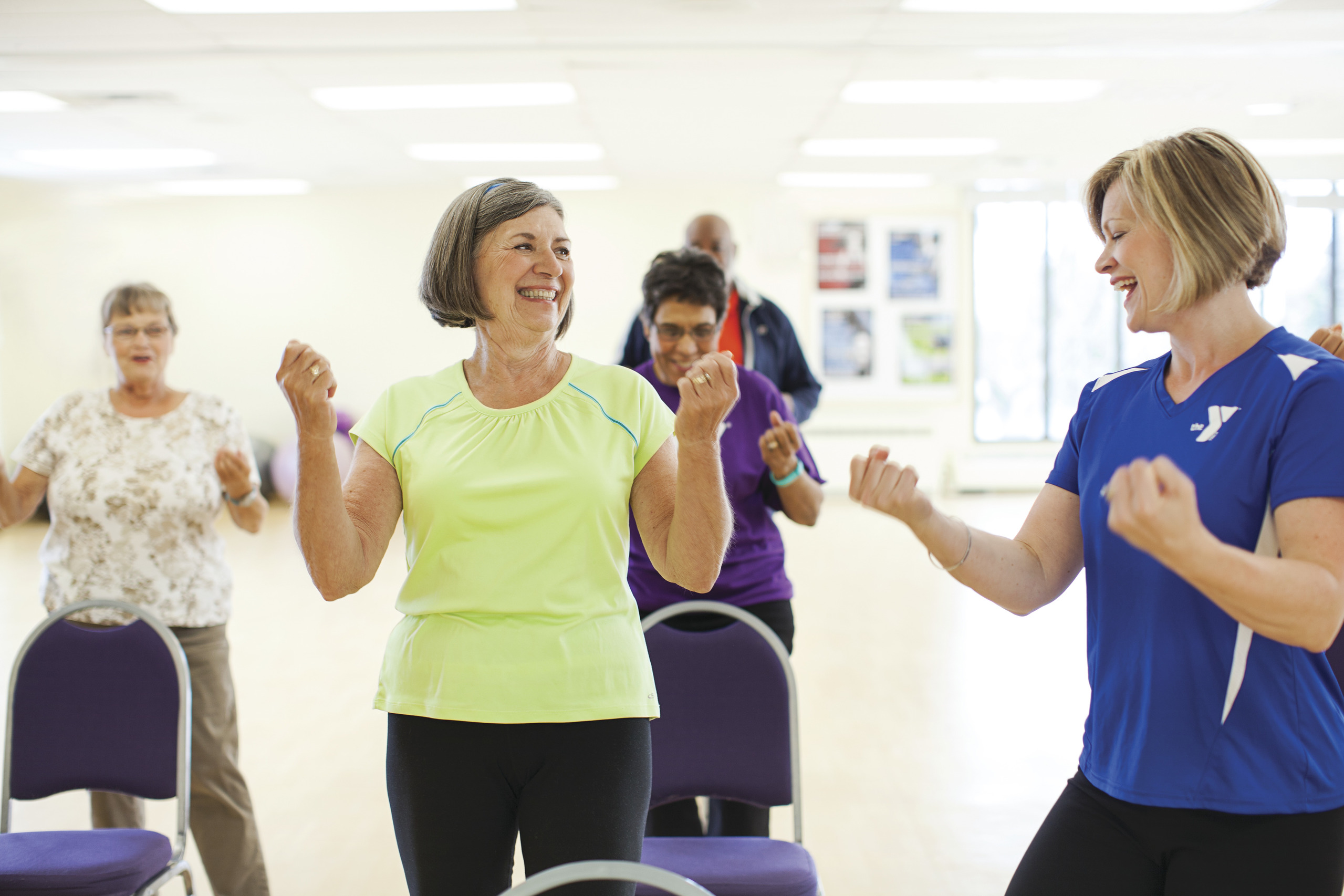The Y Encourages Older Adults “Engage at Every Age” This May
You are never too old to eat healthy, get active and social
May is Older Americans Month and the YMCA of Central Florida is emphasizing the importance of being kind to yourself by getting active and involved, no matter where you are in life. We encourage you to “Engage at Every Age,” developing behaviors that are crucial to healthy aging, including healthy eating, increasing physical activity and social interaction—especially those adults over 50.
Adults 50 years and older currently make up more than 30% of the U.S. population, and will soon represent 45% of all Americans. The Centers for Disease Control and Prevention (CDC) suggests that adults 50 and older have a 70% chance of developing at least one chronic disease. While these numbers seem daunting, the good news is that making small lifestyle changes that include increasing physical activity, eating healthier and staying active socially can help older adults live better.
You are never too old (or too young) to participate in activities that can enrich your physical, mental and emotional well-being. If you need help, support or a place to get started, just stop by the Membership Desk or see one of our Y Wellness Coaches.
The Y offers many ways for older adults to live healthier. The YMCA of Central Florida offers many older adult swim programs that help increase physical activity and improve health. These programs provide opportunities for individuals to begin or continue an exercise routine in an environment that provides resistance, as well as buoyancy, which helps reduces stress on joints when compared to other physical activities like running.
While the CDC recommends that older adults get a minimum 30 minutes of moderate exercise or strength training per day, less than one out of three of Americans 65 and older meet these guidelines. Swimming and aquatic programs may reduce the risk of muscle loss as one ages and reduce the risk of osteoporosis as well as improve cardiovascular endurance, flexibility and mental well-being.
Additionally, the Y offers the following tips on how to jump-start your healthy-living routine:
Have fun with your food. Eating healthy doesn’t have to be boring! Have fun with your fruits and vegetables by trying them fresh or frozen. Find a new recipe that uses a different source of protein or find a way to incorporate fish or beans into an old favorite. Remember as you age, it’s important to eat a variety of fruits, vegetables, whole grains, low-fat or fat-free dairy and lean meats to help your body get the necessary nutrients.
Fill up on fiber and potassium, hold the salt. As you age, your body needs more fiber rich foods to help it stay regular. Aim for a variety of colorful foods on your plate (i.e. fruits and veggies) to keep fiber rich foods a part of your diet. Additionally, increasing potassium along with reducing sodium or salt may lower your risk of high blood pressure. Fruits, vegetables and low-fat or fat-free milk and yogurt are good sources of potassium.
Get Active. Physical activity is safe for almost everyone, and the health far outweigh the risks. Regular physical activity is one of the most important things older adults can do for their health. It can prevent many of the health problems that seem to come with age (such as osteoporosis and arthritis) and reduce the risk for developing, or help manage, depression, diabetes, heart disease, stroke and certain kinds of cancers. For older adults who have chronic conditions that hinder their ability to be active on a regular basis, some physical activity is better than none, and older adults who participate in any amount of physical activity gain some health benefits.
Tweak your routine. To get the recommended 30 minutes of daily physical activity, change your routine to 10-minute sessions throughout the day. For example, stand on one foot while brushing your teeth to increase balance, and do squats while washing dishes to increase strength. Make sure you can grab hold of something to maintain balance—safety first! To increase your cardio, take the stairs instead of the elevator or park farther from the entrance to work. When sitting in front of the TV, march during commercials or do some light stretching to break up sitting for long periods.
Get social. Socialization is an important part of aging. As we get older, it’s important to be active socially to stay healthy. Take a walk with a friend or a neighbor, join a book club or volunteer at your local pet shelter or local Y. Social interaction provides meaningful engagement, builds relationships, enhances a sense of belonging and provides opportunities for involvement—all resulting in greater bonds and a stronger sense of community. Being connected to the community keeps you healthy!
